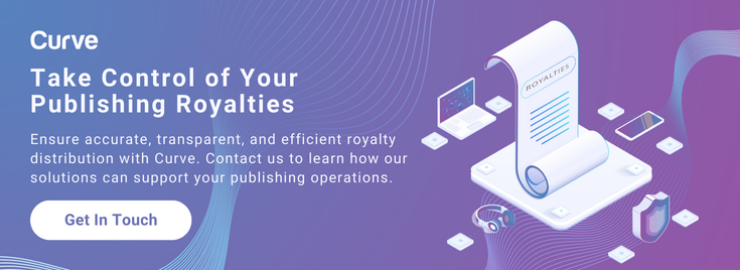Improve Your Music Publishing Metadata With ISWC Services
The modern music publishing industry is all about metadata. From copyright information to licensing agreements and royalty payments, the quality and accuracy of metadata can make the difference between receiving a correct royalty statement and missing out on income. One of the most important identifiers to achieve this are ISWCs.
What Is An ISWC?
An ISWC is an International Standard Work Code, a unique permanent identifier for a composition. ISWCs are assigned to the composition: they apply to the written song, not to the recording of the song. This identifier is an important datapoint in music publishing metadata management: ISWCs are unique and internationally recognised.
When a songwriter or music publisher registers a song with a collection society, an ISWC will automatically be assigned to it if the song registration data meets all the requirements. The collection society will inform the publisher of the ISWC code, which they can store against the catalogue item in their own database. This allows for a standardisation of catalogue data.
The ISWC database and standard is maintained by CISAC. An ISWC is formatted as an 11-character alphanumeric code. It consists of a prefix, a work identifier, and a check digit, all separated by hyphens: T-XXXXXXXXX-Y.
Fun fact: the first ever ISWC was assigned to the song Dancing Queen by ABBA: T-000000001-0
Why Are ISWCs Important?
Having a clear, internationally recognised, standardised identifier for compositions, to ensure the correct song gets licensed and paid, is vital in today’s music publishing industry. It is not unusual for music publishers to have multiple songs with the same title in their catalogue, so a mistake is easily made when trying to match royalties to songs! While most publishers have internal work codes assigned to the songs in their music publishing catalogue, those are mainly used internally. Collection societies will assign their own society work codes to songs, too. It’s easy to see why you might end up with a variety of different identifiers, all unique to a specific partner. This makes matching income messy and unreliable; hence the need for a single internationally recognised identifier, the ISWC code. This datapoint is used by the publisher and its partners and provides a consistent point of reference across the music publishing industry. ISWCs can be looked up in the online ISWC database.
Find Or Assign Missing ISWCs With ISWC Services
Despite the importance of ISWCs, there are multiple reasons why a publisher might not have an ISWC stored for a song. As mentioned above, ISWCs will get assigned to a song when it is registered; however, this only happens if it meets the requirements. If it doesn’t, the song will still get registered, but it won’t receive an ISWC.
Publishers might also receive incomplete catalogue data from other publishers, and older songs are especially likely to be missing ISWC data. To help publishers fill the gaps in their music publishing metadata, CISAC launched two ISWC Services:
- The ISWC Resolution Service allows publishers to look up ISWCs for Works that might already have had an ISWC assigned in the past. This helps publisherswill help them fix metadata gaps in their existing catalogue. They can do this by sending a list of all titles they would like to look up an ISWC for, and comparing the publisher’s catalogue items against CISAC’s ISWC database. CISAC will return a file containing the ISWCs to the publisher.
- The ISWC Allocation Service can be used to request ISWCs earlier in the process, before the registration of the song. This service is provided by collection societies and allows publishers to request that an ISWC be allocated to a song before they register it. Having this important datapoint available early on allows the publisher to include the ISWC when they register the song, sending a complete dataset to their collection societies and other partners from the beginning.
Curve’s music publishing catalogue software offers ISWC Resolution and Allocation tools, enabling publishers to easily create the required files to use the Resolution and Allocation service. The files are generated and sent directly from the software, and the returned acknowledgement files can be ingested into the platform. Curve will automatically add the returned ISWCs to the publisher’s catalogue data, facilitating an easy and quick way to improve their catalogue metadata. If all parties in the industry use these tools, music publishing metadata will be improved across the board.
To learn more about Curve’s ISWC Services feature and how the software can help you improve your own music publishing catalogue metadata, get in touch with our team for a demo of the platform.







